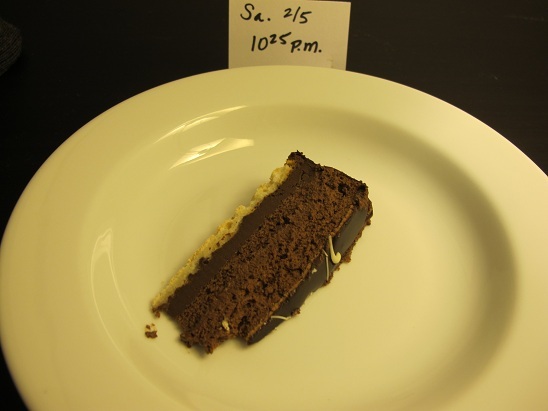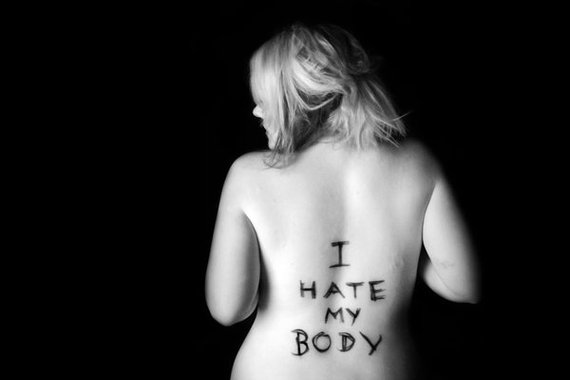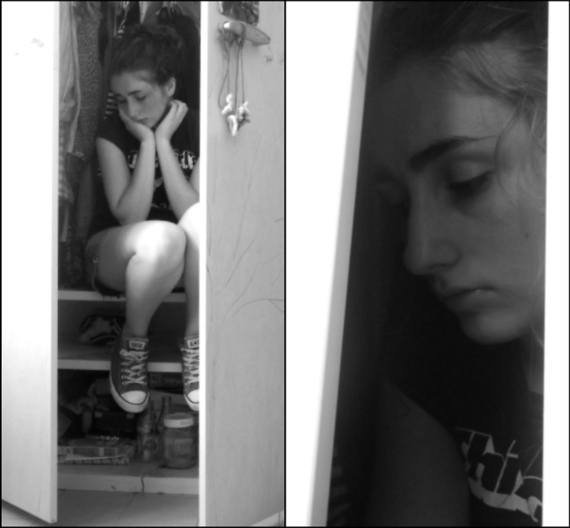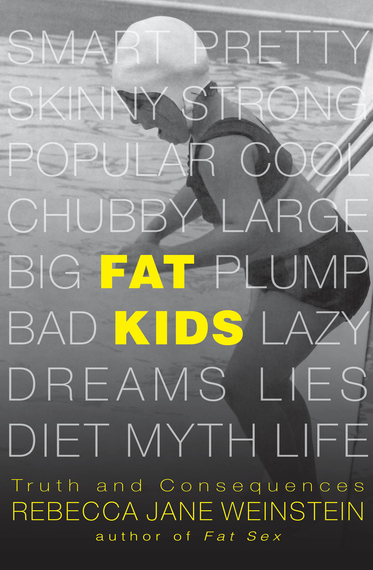Hannah's mother was an avid baker, and a good one at that. There would always be cakes and cookies and all types of delectable Southern sweets in the fridge and the cupboards, tempting, if not calling out, to be devoured. Frostings and glazes. Creamy and crisp. The lushness of butter covering the tongue. Or the snap of a wafer slightly gritty to the teeth. Sugar and vanilla, cinnamon and nutmeg, lemon, orange, hazelnut. Chocolate! Wafting through crevices, floating under doors. Who can resist such glorious temptations? But that was the test. The test of willpower, and more importantly, obedience. Even a sliver gone was noticed, in fact it was calculated, measured, and each part subtracted from the sum of the whole. And with every morsel unaccounted for, shame and regret.
It was sadistic. It was control. It was devastating. It was merely an extreme version of what many people go through with food every day.
Hannah was raised basically in the middle of nowhere. She lived with her mother and father, and a brother who was three years younger than she. Her mother was stricken with some kind of mental illness, though never defined. She was filled with anxiety, narcissism, and terrific mood swings. And though it wasn't easy to label, she also had eating disorders and a distorted perception of her body. Her body defined her. Whether that was a direct consequence of mental illness is not clear, but what is clear is that mental illness, body image, and food, were twisted into some warped vicious battle, and Hannah was an extension of that in her mother's eyes. It eventually became an extension in Hannah's own eyes, as well. There really was no escape.
Hannah was not a fat kid. Perhaps a bit plump. To her mother, though, she reflected fat, and fat was just about the worst thing one could be. The irony was that her mother, a born southerner who cooked like the southern best, would do so as a regular course. It would have been difficult not to develop a sweet tooth in that house, as everything that filled the shelves was designed to do just that. And to be a trap. It was the regular practice of Hannah's mother to count every item, weigh, and measure. Each day she would set about measuring the cake. It was a ritual. She knew the precise amount that had been there the day before, and the precise amount that had been removed. And if there had been any removed, Hannah experienced her wrath.
Hannah was put on Weight Watchers, for the first time, at age seven. It was a must she be put on the program because her mother was adamant that "no one will ever love you if you are fat." Perhaps even worse than lack of love in her mother's view, she was certain there are no fat cheerleaders. Hannah never wanted to be a cheerleader, but that was beside the point. It was perhaps symbolic. The more distorted it all became, the more Hannah did actually gain weight. The verbal abuse became proportionally worse. While in the midst of cooking and baking the temptations -- the callings -- Hannah's mother would tell her daughter that she looked as if she could live forever on her fat.
So Hannah became a closet eater. She literally would take food into the closet to hide and eat it. It was the how she handled the stress. The verbal abuse was simply more than she could take. She developed a "great dislike" for her mother, and a cat and mouse game, with both Hannah and her mother being cast as the cat. Hannah would try to outsmart her mother, the satisfaction of the win outweighing the repercussions of the loss. She would examine the Tupperware then take the tiniest sliver of cake from one side and the tiniest sliver from the other, making sure they were precisely the same. Then she would replace the lid and the container exactly as it had been. Hannah would eat the cake and wash the dish by hand, placing it and the utensils just where she had found them. She barely got a taste of the cake, the enjoyment was more in the trickery, which she often pulled off. This was the greatest of capers and height of rebellion. Outwitting her mother's control was a satisfaction in childhood that had no rival, and was a major topic of discussion in therapy for years to come. To this day Hannah will take matching slivers from cakes, though there is no one to hide it from.
Edited excerpt from "Fat Kids: Truth and Consequences" by Rebecca Jane Weinstein
Cake on plate photo credit, Ellen Tarlin.
___________________
If you're struggling with an eating disorder, call the National Eating Disorder Association hotline at 1-800-931-2237.




